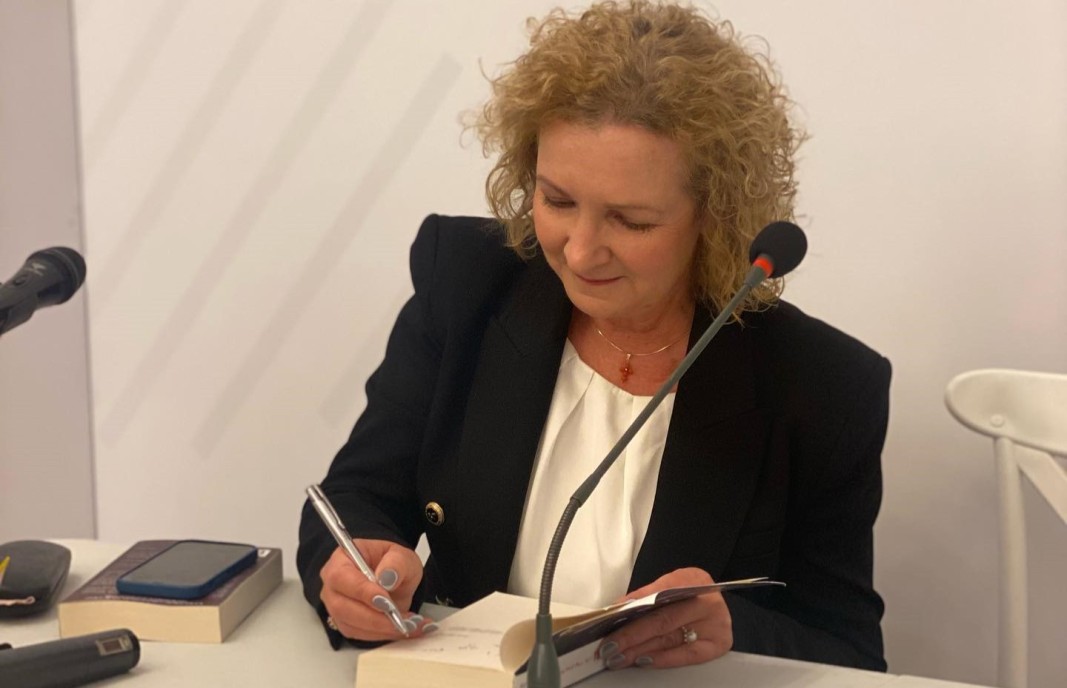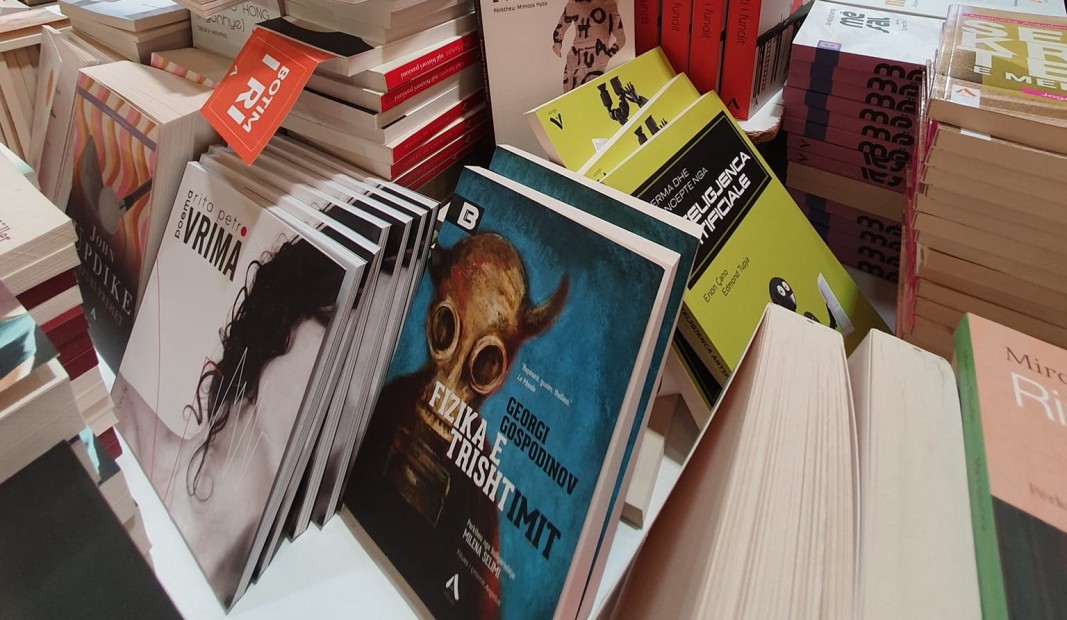Albanian writer, translator and public figure Milena Selimi, who has been the representative of the Bulgarians in the Committee of National Minorities in Albania since June 2023, comes from a Bulgarian-Albanian family. Since 1964, her mother, Yanka Selimi, a native of the town of Dobrich (Northeastern Bulgaria), has promoted the Bulgarian language in Albania as a translator in the Bulgarian section of Radio Tirana, in various Albanian institutions and as a lecturer at the University of Tirana. Milena's father, choreographer Skënder Selimi, is the founder of the Albanian ballet school, author of textbooks on choreography and ballet history, as well as monographs on Albanian folk dances.

After graduating in Albanian philology in Tirana in 1991 Milena began working as a journalist and screenwriter of children's programs in the Albanian radio and television. In the 1990s she also completed a master's degree in journalism at the Sofia University "St. Kliment Ohridski", after which she worked as an editor, producer, editor-in-chief and executive director in Radio Tirana. She also worked as the editor-in-chief of some of the most widely read newspapers and magazines in Albania, as well as a correspondent for the BBC. In the period 2013-2015, she was a senior adviser on media communication at the Ministry of Culture of Albania, and since 2019 she has been the executive director of the Center for Openness and Dialogue in Tirana. However, radio has a special place in her heart:
"Radio is in my heart. Whenever I have the chance, I also do things for the radio. I started with translations as a student in Tirana. In order to introduce my fellow Albanians to Bulgarian literature, I translated Elin Pelin's stories for them. I started translating professionally in 2010. I was helped by the Traduki network, which gives people from the Balkans and Eastern Europe the opportunity to get to know each other through literature. I have translated authors from Bulgaria, Serbia, North Macedonia, Croatia. Georgi Gospodinov is very close to my heart. I am the translator of his book ‘Physics of Sorrow’, and now I start with ‘Time Shelter’. I have translated ‘Mission London’ by Alek Popov, also books by Milen Rouskov and Kalin Terziyski. I am currently translating the latest novel by Professor Zlatimir Kolarov”

Interest in Bulgarian authors has been growing in Albania, Milena Selimi tells us and explains how she decides what Bulgarian literature to present to Albanian readers.
"Everything starts from the moment I personally meet the author. I know Albanian writers who know about the works of contemporary Bulgarian artists. For example, Stefan Çapaliku is an Albanian who recently had a presentation in Sofia. When he or other colleagues return from international meetings, I talk to them and they tell me how literature is developing in Bulgaria. Georgi Gospodinov was translated in Albania 10 years ago but people are just now getting to know him. Of course, this is also thanks to the Booker Prize, because such awards influence the readers."

Connections and access to Bulgarian culture are essential for knowing the culture of the country. According to the Bulgarian advocate in the Committee of National Minorities, this would be most successful through the construction of a cultural center in Albania.
"Bulgaria has similar centers in North Macedonia and in Serbia. Such a center could be established in Albania too,” Milena Selimi says. “The center would be of much help. The last time we saw a Bulgarian theater performance here was 6-7 years ago - a play by Mira Dobreva. There were also performances by several dance groups, but that's not enough. We need a space where we can talk about culture, talk about ourselves and present Bulgarian achievements. This is important both for Albania and for Bulgaria and especially for the Bulgarian community. When you see attention from the state, from its institutions, it gives you an incentive to continue defending your culture. Bulgarians here love both Albania and Bulgaria. The two countries have very good relations at the moment. We are in constant dialogue with the new ambassador of Bulgaria in Tirana and I hope that the efforts will continue."
English publication: Al. Markov
Photos: Krasimir Martinov, Kostandina Belo, Facebook page of Milena Selimi
Anabell Casaboff is one of the thousands of descendants of Bulgarians in Argentina who do not speak the language of their grandparents but Bulgaria is still present in their lives. She is a charming ballerina who dances and teaches..
Mihaela Aroyo is a professional photographer from Varna, Bulgaria. She has no family or close friends who are Bessarabian Bulgarians. But in 2019, after attending a youth festival in a Moldovan village, she was deeply impressed and decided to dedicate..
It is 116 years today since 22 September in 1908 when Bulgaria proclaimed its independence, taking its due place alongside the other free and independent countries of Europe at the time. Though unlike the unification, the proclamation of Bulgaria’s..
Nuredin Nuredinaj comes from the historical-geographical region of Gòra in Northeastern Albania, where 90% of the inhabitants identify themselves as..

+359 2 9336 661
